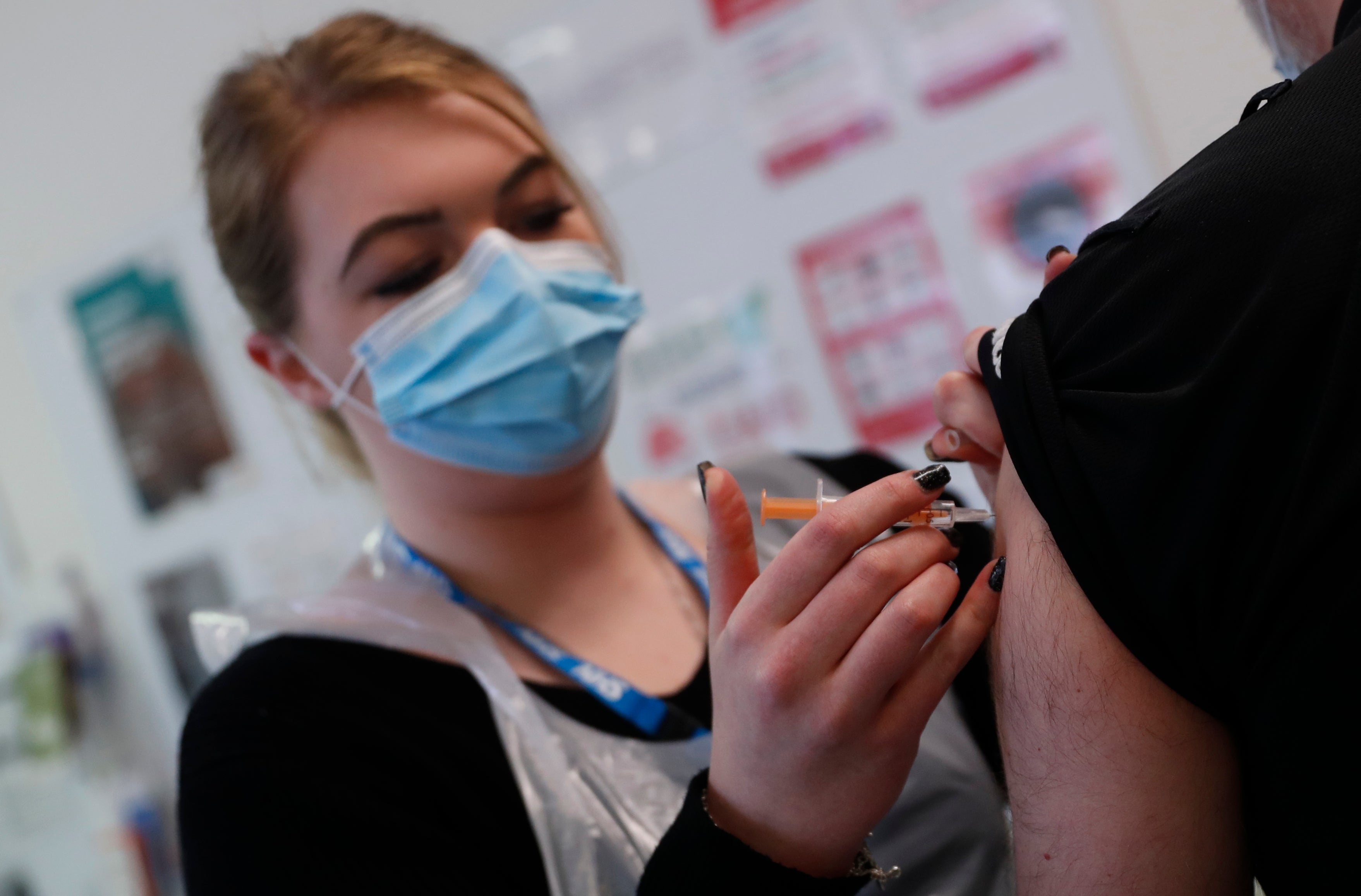UK: Shortfall in vaccine deliveries will delay jabs
COVID-19 vaccinations for people in Britain under 50 may be delayed for up to a month amid a shortfall in supply, partly due to reduced deliveries from the Serum Institute of India

Your support helps us to tell the story
From reproductive rights to climate change to Big Tech, The Independent is on the ground when the story is developing. Whether it's investigating the financials of Elon Musk's pro-Trump PAC or producing our latest documentary, 'The A Word', which shines a light on the American women fighting for reproductive rights, we know how important it is to parse out the facts from the messaging.
At such a critical moment in US history, we need reporters on the ground. Your donation allows us to keep sending journalists to speak to both sides of the story.
The Independent is trusted by Americans across the entire political spectrum. And unlike many other quality news outlets, we choose not to lock Americans out of our reporting and analysis with paywalls. We believe quality journalism should be available to everyone, paid for by those who can afford it.
Your support makes all the difference.British health authorities say COVID-19 vaccinations for people under age 50 may be delayed for up to a month amid a shortfall in supply, partly due to reduced deliveries from the Serum Institute of India.
Britain’s National Health Service told public health officials Thursday that vaccine supplies available for first doses would be “significantly constrained” beginning March 29. As a result, people under 50 shouldn’t get shots unless they have underlying health conditions that put them at higher risk, according to a letter from Emily Lawson, the NHS’s chief commercial officer, and Dr. Nikita Kanani, medical director for primary care.
Doctors had expected to begin vaccinating younger people next month, but that will have to be pushed back until May, said Dr. Martin Marshall the chairman of the Royal College of General Practitioners and a GP in east London
“It was disappointing news when we heard yesterday that the supplies weren’t going to be available during April,” he told the BBC “It’s a massively successful program overall, and this is a bit of a setback.”
The Department of Health and Social Care said the delay won’t prevent the government from meeting its target of delivering a first dose of vaccine to everyone over 50 by mid-April and to all adults by July 31.
The shortfall is due in part to smaller than expected deliveries from the Serum Institute of India, which was expected to supply Britain with 10 million doses of the AstraZeneca vaccine this month. However the Serum Institute maintains that there were no “stipulated timelines” for delivery of the vaccines.
The institute said Thursday that 5 million doses have been delivered “and we will try to supply more later, based on the current situation and the requirement for the government immunization program in India.”
Britain is using vaccines developed by U.S. drugmaker Pfizer and Anglo-Swedish rival AstraZeneca. More than 25 million people across the U.K., or almost 38% of the population, have received at least one dose of vaccine so far.
Robert Jenrick the minister for housing, communities and local government, said the government has always expected fluctuations in vaccine supplies because of the difficulties in ramping up production. No single company is responsible for the current shortfall, he said.
“There are multiple manufacturers around the world who are experiencing supply issues at the moment,” Jenrick told the BBC. “It would not be right for me to pin blame on any one manufacturer, factory or country. That is not the case.”
Dr. Simon Clarke, associate professor of cellular microbiology at the University of Reading, said the short-term disruption in supplies could have knock-on effects that last for months, including potential delays in lifting COVID-19 restrictions.
“By pushing back the under-50s first doses, their second doses are also being pushed back,” he said. “If full vaccination becomes required for holidays abroad or even more mundane things like going to the cinema, millions of younger people may end up being excluded from participating for the whole summer.”
___
Aniruddha Ghosal in New Delhi contributed.
___
Follow AP’s pandemic coverage at: https://apnews.com/hub/coronavirus-pandemic,https://apnews.com/hub/coronavirus-vaccine, and https://apnews.com/UnderstandingtheOutbreak.